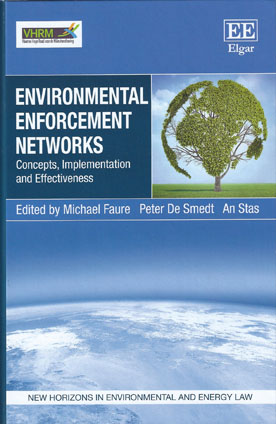
Compliance and enforcement is a fundamental issue within environmental law. But despite its pertinence, it is an area that has been neglected in academic research. Addressing this gap, this timely book considers the circumstances under which networking can increase the effectiveness of environmental enforcement.
Presenting a general theory of how and why networking can increase the effectiveness of environmental enforcement, expert contributors ascertain the potential benefits of environmental enforcement networks. Specific criteria and benchmarks are provided, indicating under which circumstances networking may increase the competency of environmental enforcement.
The book explores theoretical and empirical discussions of the benefits of networks, offering a discerning assessment of enforcement networks' influence on environmental protection. It also examines issue based examples of networks, such as networks dealing with transboundary waste or wildlife. In addition to this, environmental enforcement in particular areas is considered, such as the US, Europe, Australia or Africa.
Academics in environmental law and policy will benefit from this thorough overview of an important phenomenon. In addition, practitioners and policy makers will appreciate the valuable insights presented.